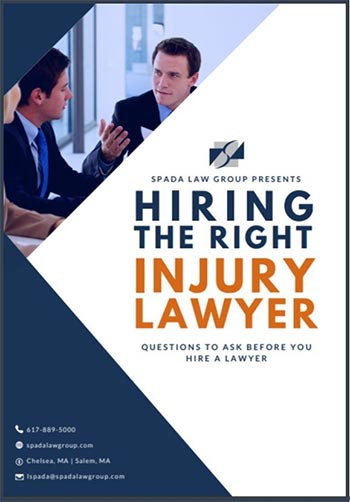Our firm handles serious personal injury cases. Whether the mechanism of injury is a car accident, a slip and fall, a construction site accident or a medical error, they all involve somebody who got hurt due to someone else’s negligence. Regardless of how the injury occurred, some of the most catastrophic cases we have handled involved brain injuries. Most people are familiar with the term concussion, but fewer are aware of the medical term, mild traumatic brain injury (MTBI) even though these terms are used interchangeably in the medical literature, and we use them interchangeably in this article.
We recently took a case to trial where our client suffered a severe life-threatening brain injury and was rendered permanently disabled as a result. Cases like this one are very sad but present little difficulty for lawyers to establish that a serious brain injury occurred. You can see the effects of the injury, they are obvious. You can read the medical records, they clearly document the client's brain damage. There is usually no question that a brain injury occurred. This is not the case however when handling a mild traumatic brain injury case. In cases involving concussions, the client often looks normal. Their medical records often do not contain objective evidence of a brain abnormality. Yet, the client is suffering, sometimes profoundly from a brain injury. For these reasons, MTBI cases are some of the most challenging we see. The purpose of this blog is to discuss in general terms what these personal injury challenges are and how we address them to properly help our clients get the compensation they deserve.
What is a mild traumatic brain injury or concussion? ![Massachusetts Traumatic Brain Injury Attorney Serving Chelsea]()
A MTBI is a traumatically induced physiological disruption of brain function. It is characterized by the injured person feeling dazed, disoriented or confused at the time of the accident.
This definition of a mild traumatic brain injury includes:
- the head being struck:
- the head striking an object: and
- the brain undergoing acceleration/deceleration movement without direct external trauma to the head.
Most people believe that lost consciousness must occur to sustain a MTBI. This is not true since the definition of a MBTI in the medical literature includes patients who have lost consciousness for 20 minutes or less or have not lost consciousness at all.
What Are The Signs And Symptoms Of A Concussions
Signs and symptoms of MTBI’s generally fall into four categories: physical, cognitive, emotional, and sleep and may include:
Physical Symptoms
-
Headache
-
Nausea
-
vomiting
-
balance problems
-
dizziness
-
visual problems
-
fatigue
-
sensitivity to light and noise
-
numbness/tingling
-
dazed or stunned
Cognitive Symptoms
-
feeling mentally foggy
-
feeling slowed down
-
difficulty concentrating
-
difficult remembering
-
forgetful of recent information or conversations
-
confused about recent events
-
answers questions slowly
-
repeats questions
Emotional Symptoms
-
irritability
-
sadness
-
more emotional
-
nervousness
Sleep Signs
-
drowsiness
-
sleeping less than usual
-
sleeping more than usual
-
trouble falling asleep
Why Are MTBI’s So Difficult To Diagnose?
Mild traumatic brain injuries are difficult to diagnose and therefore are very difficult for clients to receive full and fair compensated in the context of a personal injury lawsuit. One of the biggest problems is that conventional MRI and CT scans lack the sensitivity to provide imaging of the damage often caused in a MTBI. One type of brain injury that is often missed is called diffuse axonal damage, which occurs when the long connecting fibers in the brain (axons) are sheared when the brain is rapidly accelerated/decelerated inside the skull. These axonal injuries can and do cause many of the symptoms we see in clients such as dizziness, nausea, fatigue and headaches. Many patients with a history of concussion will have normal MRI or CT scans yet still suffer from some or all of the symptoms listed above.
The good news is that the long-term prognosis for clients suffering from a MTBI is favorable even though there can be significant short-term behavioral and cognitive consequences as a result of the injury. The bad news is a significant minority of people with concussions develop chronic, and often debilitating problems that collectively have become known as chronic post concussive syndrome.
Preparing A Personal Injury Case Involving A Mild Traumatic Brain Injury
Because cases involving concussions can be very difficult to prove we take care in both choosing which cases we take and preparing the ones we do. Below is a summary of what we do when considering a MTBI case.
Understand the current medical research
Obviously in order to properly handle a significant brain injury case, attorneys need to become well versed in the medical literature that relates to the diagnosis and treatment of these injuries. Below are a few of the resources that are consulted on a regular basis to stay up to date on the medical issues.
(a) Journal of Head Trauma and Rehabilitation
(b) IBIA International Brain Injury Association
(c) Textbook of Traumatic Brain Injury
(d) Litigating Brain Injuries
Factors we consider when deciding on whether to take a MTBI case
Since the diagnosis of a mild traumatic brain injury is frequently absent from emergency room records despite patients reporting symptoms that are consistent with a mild traumatic brain injury, case selection by lawyers is critical due to the complexity and difficulty in proving the full extent of the client's brain injuries. Below are some criteria that guide us attorneys when deciding on which cases to take and which ones to pass on.
-
Good liability (meaning we are confident we can prove our client wasn’t at fault)
-
good impact (minor car accidents are very difficult when trying to prove major injuries)
-
positive for loss of consciousness (not necessary but helpful)
-
a likable and sympathetic client (always a criterion regardless of the case)
-
lost income because of their injuries (makes the impairment argument more believable)
-
clear and persuasive evidence of a change in behavior and symptoms prior to and after the accident
-
evidence of no a pre-existing injury (prior head injuries are major challenges)
Type of investigation we may do prior to making a final decision on whether to take a case
-
a thorough review of all post accident medical records
-
interview teachers, co-workers, supervisors, coaches etc.
-
review any standardized testing that was taken prior to the accident
-
inquire and review any criminal history
When preparing a case for trial the client's quality of life before and after the accident is a critical issue to be explored. In any brain injury case the “before and after” evidence actually proves the existence of the injury itself unlike in other cases. The time spent meeting with and speaking to friends, family and co-workers who knew the client before the accident and who can persuasively testify as to their observable differences in behavior is so important in successfully litigating a brain injury case. We review school records, family photos etc. to establish a clear picture of how our client’s life has changed because of the brain injury.
In brain injury cases experts are also used extensively to prove both the injury and the consequences of those injuries. In any given case the list of experts utilized may include:
-
primary care physician
-
economist
-
vocational rehab specialists
-
neurologists
-
radiologists
-
neuropsychologist
Contact Our Chelsea Traumatic Brain Injury Lawyers Today
As you can see, brain injury cases can be very challenging and should only be handled by a competent and experienced Massachusetts personal injury attorney. If you have questions relating to a brain injury sustained in an accident, call Spada Law Group today at 617-889-5000. We will take the time to discuss your situation with you, review any documents you may have and help you assess your case and how to best proceed.




